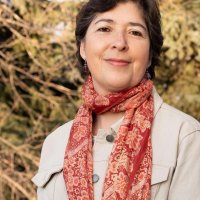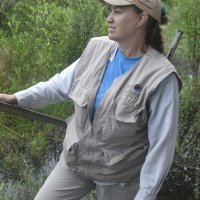Livelihoods Venture has a long track record of leading mangrove restoration projects around the world. Since 2009, Livelihoods has helped restore more than 25,000 hectares of mangroves in Senegal, India, and Indonesia. These projects have helped recover ecosystem services and improve the livelihoods of communities who live close by.
The company is writing a new chapter in Mexico.
Rosa Maria Vidal, Livelihoods Project Manager for the Veracruz mangrove project, and Elisa Peresbarbosa Rojas, Director General of Pronatura Veracruz, the project implementor, discuss the importance of building strong partnerships in the field and the unique positioning of the Livelihoods Carbon Funds.


Rosa Maria Vidal, Livelihoods Project Manager
Elisa Peresbarbosa Rojas, Director General of Pronatura Veracruz
Livelihoods projects are based on co-construction with our NGO partners. How did it work on the mangrove restoration project in Veracruz, Mexico?
Rosa Maria Vidal: It is very important that the project is designed together, not only with the non-governmental organization (NGO) but with the communities. This allows us to align on our joint purpose and vision, as well as to understand what the challenges could be. It creates a sense of team and trust that is needed for long term projects.
The team at Pronatura Veracruz was very open to our ideas and dedicated time during the design phase of the project. For the NGO it wasn’t easy to cope with some of our requests, but as true partners they invested with knowledge, time and their network.
We were able to talk with the local families in the fisher villages and with cattle ranchers, and listen to their challenges in finding support for their productive activities. At Livelihoods, many members of our team dedicated time to learn and bring our experiences from other parts of the world to help make the best possible project together. A real team effort.
Elisa Peresbarbosa Rojas: We started our relationship and discussion with the Livelihoods Team, three years ago. During those years, we had been building a relationship, talking for many hours, and getting to know all the field team members, made three field visits and toured the area, and engaged with the local communities to better understand the area and their needs. It is a very long process but it is worth it to build a strong and close relationship with Livelihoods and the local communities.
We had many virtual conferences with several Livelihoods team members. Livelihoods took the time to understand and discuss at different levels on various topics (technical aspects of mangrove restoration, ecological feasibility, social strategies, Pronatura Veracruz’s capabilities).
During these three years, we built a close and trusting relationship. In the field we had many exchanges with Livelihoods officials to better understood the local conditions. They showed a genuine interest to try to find the best options.
Carbon markets are increasingly crowded. Based on your experience, what differentiates Livelihoods’s approach?
Rosa Maria Vidal: Livelihoods’s approach is to bring the investment to the present needs, beyond the simple idea of paying for carbon credits, which we don’t do. We invest to generate local capacity and long-term benefits by improving people’s livelihoods.
Carbon finance is a tool, a means for sustainable development. It is not easy to reach a good balance in the project design, to have investments that cover mangrove restoration and programs that improve productivity and income. We use a large percentage of the funds in the first 5-7 years of the project, as many of the farmers and fishermen have immediate needs. They appreciate that we can use the carbon funds for real and long-lasting transformations.
Our projects also have climate integrity and are monitored in the delivery of Verified Emission Reductions (VERs). We also monitor all other social and environmental impacts. At the end, we pre-pay carbon that is not yet produced and we also take a good part of the risk, because we trust our partners in the communities and the NGOs.
Elisa Peresbarbosa Rojas: This is the first time that we work in such a close working relationship with a financer.
One of the main aspects that differentiates Livelihoods, is the long-term commitment of the investors of the carbon funds. Livelihoods and its investors share a deep commitment to secure long-term change in the socioenvironmental conditions of local communities.


